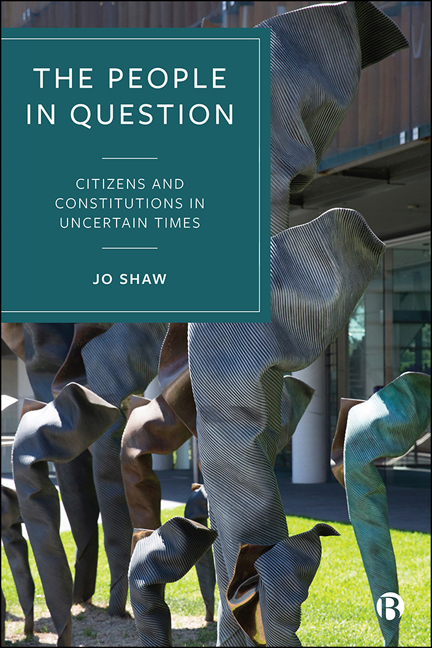7 - Shifting Spatialities of Citizenship
Published online by Cambridge University Press: 18 March 2021
Summary
Introduction
In Part I of the book, I emphasized that international law starts from the premise that the regulation of ‘nationality’ (in the technical sense of the link between a person and a state) is a matter of state sovereignty. It seems, then, counterintuitive that we should now embark on exploring the issue of citizenship ‘beyond the state’. How can this be? In fact, while examining the regulation of citizenship under national constitutional law, in every chapter we have already seen multiple examples highlighting that national citizenship regimes do not exist in isolation. Any attempt to present citizenship regimes as islands in a sea of international law, which limits itself to dealing only with frictions between the regulatory systems of separate islands, presents an incomplete picture of membership in the 21st century. At many points, the outside has ‘leaked in’, with references throughout the book to various international and supranational legal regimes that directly impact on national citizenship or set up complementary and sometimes competing membership frameworks. In fact, through the historical examples we have pursued, especially the ones based on colonialism, we have seen that there has never been a time, since the rise of the ‘modern citizen’ after the first 18th-century revolutions, when the regulation of citizenship has not had to contend with the leaky and blurred boundaries of states.
Nowadays, we undoubtedly need to focus on the importance of a ‘global governance’ approach to regulating citizenship. The incidents of globalization are already intense, and growing more so, even if we only limit ourselves to territorial transgressions of borders. The allocated and often imposed boundaries of states have only ever imperfectly reflected other human communities and affinities such as ‘nations’ in the cultural or ethnic sense, or religious or linguistically based communities (Glenn 2013). The Westphalian ideal of each and every person being assigned to just one state in respect of every aspect of their lives was never realistic, and certainly in no way represents the reality of life at the present time. People move, and form families across borders. Try as they might, states have been unable to pigeonhole the citizenship affiliations of those who move or who, like children, are affected by movement driven by others into closed boxes.
- Type
- Chapter
- Information
- The People in QuestionCitizens and Constitutions in Uncertain Times, pp. 223 - 252Publisher: Bristol University PressPrint publication year: 2020



